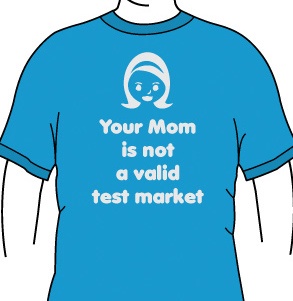 Shared by Lisa Romanelli McDonald, Empower Lounge’s market validation expert.
Shared by Lisa Romanelli McDonald, Empower Lounge’s market validation expert. You can follow Lisa on LinkedIn.Â
“Market Validation,†“Validate your Market,†and “Validation†have become buzzwords entrepreneurs toss around and bloggers blog about, but seldom have I found individuals who actually understand what “validating your market†means to their venture.
There is more to it than the above steps, but in essence, those questions are the heart of what you should be trying to answer. If we go back to basics and dissect the meaning of “market validation†we have: “establish the soundness ofâ€,  “the entire enterprise of buying and selling commodities and securitiesâ€; so basically MV is to prove there is a need for your product/service. However, people often forget that during the process of “validating your market,†you might find that you did not validate a need for your product/service and it is time to either kill the venture or shift tracks based on the information ascertained.
The information ascertained from a validation exercise is vital to the roadmap of your business or soon Âto Âbe business, but too often getting the information is where I see people either hungÂup or completely giveÂup.
Ironically, market validation does not necessarily mean the end result will give a definitive yes as to a need for your product/service you might actually find that there isn’t a need for it, and a “NO†can be more valuable than a “YES.†Before you start the MV process, make sure you do not expect your pool of interviewees to agree with your solution, or even that a pain exists. Frame your questions so that you get honest answers, not answers you want to hear.
Everyone thinks their idea is the next best thing, otherwise you wouldn’t consider launching a business around it. However, in the early stages of MV, proceed with caution and stay away from the KoolÂAid. Divorcing yourself from the romance just means to keep yourself grounded and not swept away with how novel or innovative you believe your product/service to be. When interviewing, stay focused on what your product does, not how it does it. Divorcing yourself from the romance will also allow you to frame your questions in a way that gives you honest answers, not answers you want to hear.
The biggest mistake people make in an MV exercise is to interview random people who aren’t in the target demographic. Defining your target demographic is the first thing you should do when considering launching a business because this demographic will become the pool of interviewees you go to when doing your MV study. For example, if your product was in the infant care industry, you wouldn’t ask a childless individual what they thought of your product and would they buy it because the chances of them purchasing your product to solve a problem they face caring for an infant are pretty slim.
Rule of thumb don’t ask family or friends to participate in the initial validation phase. The truth is, they want you to succeed and more times than not, will tell say your idea is amazing in effort to be supportive regardless of what they really think. Do yourself a favor and don’t even go there until you are more steadfast in the direction your product should take.
So many times I hear people say they need a patent before doing an MV study, or they can’t do one because someone will steal their idea. First, why would you invest literally thousands on a patent on a product for a market that doesn’t exist? Wouldn’t you rather know before you spent the money on a patent that the product would actually sell? This goes back to my earlier statement that there are lots of good ideas out there that aren’t generating revenue. Don’t become a statistic do your homework first. Second, stealing your idea isn’t really a problem it is the execution. Sure, someone could like your pitch and begin working on a similiar project, but if you are serious and diligent in your MV, you will have a first mover advantage no one will touch.